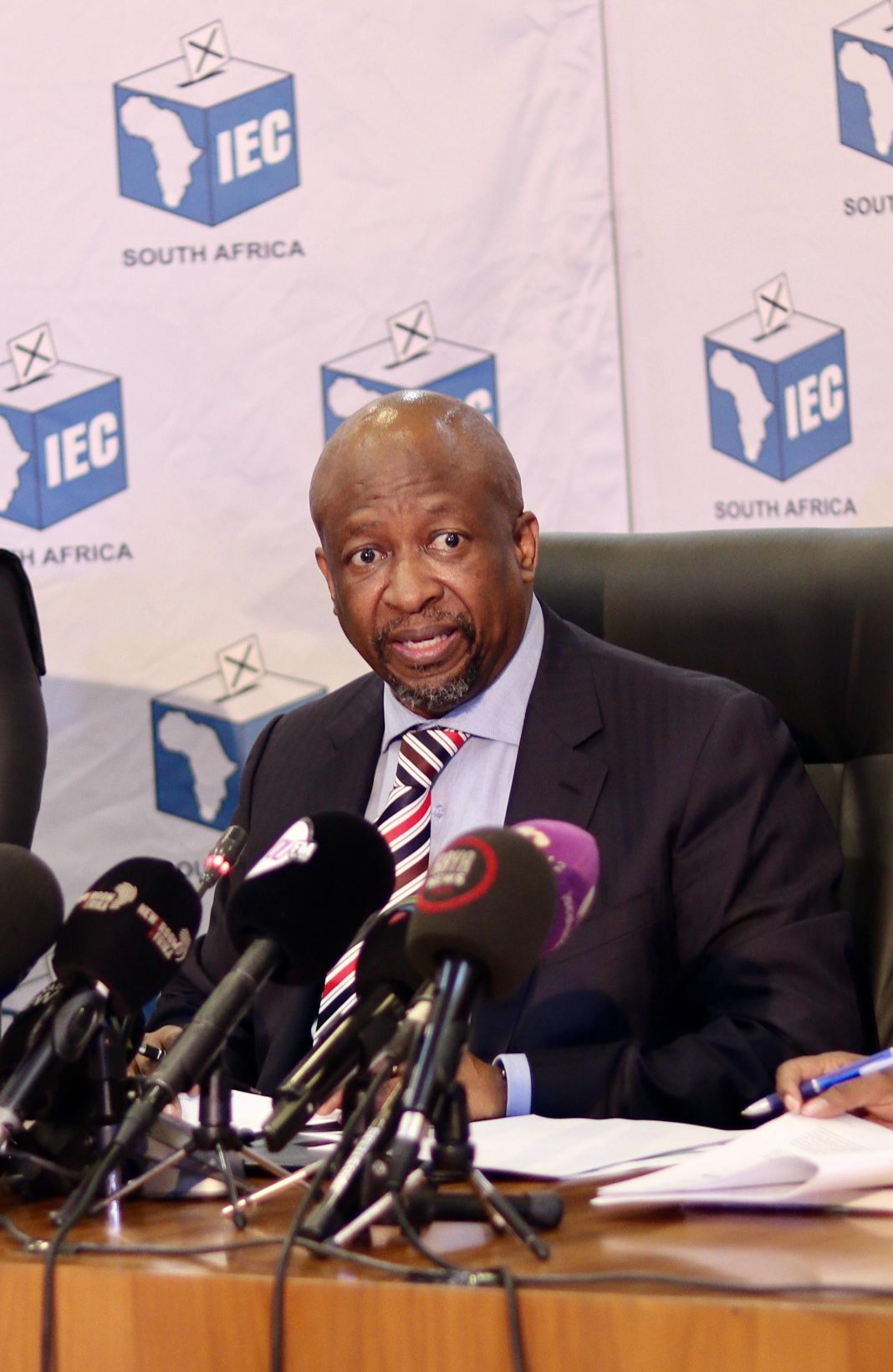By Thebe Mabanga
The Independent Electoral Commission (IEC) has begun preparations for the 2026 Local Government Elections (LGE), with the number of councilors for each of three categories of municipalities already determined, and ward boundaries currently being finalised by the Municipal Demarcation Board to determine the number of wards and the commission set to take over the process in the last quarter of this year.
At the last elections, there were 4600 wards in South Africa while the next Local Government Elections are expected to be held between November 2026 and January 2027.
Chief Electoral Officer, Sy Mamabolo, speaking at a press briefing held at Election House, Riverside Office Park, Centurion, on Wednesday, said the IEC has aggressively reached out to recruit more voters, especially young voters.
Mamabolo said during the current financial year, the IEC plans to distribute approximately R335 million, or R84 million per quarter, to parties represented in the National Assembly and provincial legislatures.
There are no independent candidates in South Africa’s legislatures.
Mamabolo said the IEC has begun preparations for the next Local Government Elections, guided in part by the five-year term of office, which for the current cohort expires next year.
Elections must be held within three months of the expiry of the term, and the last Local Government Elections took place in early November 2021.
Minister of Co-operative Governance and Traditional Affairs Velenkosi Hlabisa is responsible for setting the election date, and Mamabolo confirmed that consultations in this regard have already begun.
In March this year, the Commission began a process to formally explore the process of introducing electronic voting in South Africa, through a E-Voting Conference held at the Cape Town International Convention Centre (CTICC) in Cape Town, Western Cape.
The commission has now released a discussion document on the subject entitled, Policy Discussion Document: Exploring the Implementation of Electronic Voting in South Africa, and will conduct public consultations till September, with the report expected to be finalised next year.
Mamabolo emphasised that no decision of electronic voting has been made.
“Public trust is central to the success of e-voting. That’s why it is critical that the process is open, inclusive and accessible to all South Africans,” Mamabolo said.
“E-voting should not only enhance convenience and administrative efficiency, but it must also strengthen transparency, public confidence in electoral outcomes, and broaden participation across demographics.”
Mamabolo also provided an update on the commission efforts to update its database of registered political parties, of which there are currently 609.
In February this year, the commission wrote to 192 parties notifying them of the intention to cancel their registration.
Mamabolo said 136 parties have made representations, three have requested to have their registration cancelled while 56 did not respond.
The South African Community Party (SACP), which intends to contest next year’s elections independent of the ANC, have also made representations to maintain their status.
The IEC expressed concern that young people between the ages of 18 to 34, who account for a third of the country’s general population, are not adequately represented as voters.
Mamabolo said as of this week, the total number of registered voters stood at 27 654 830. Young people of 18- to 35-year-old account for 28% or 7,9 million of the registered voters.
The Commission is to embark on a voter registration drive in the country’s universities and Technical and Vocational Technical (TVET) Colleges and has already reached about four hundred high schools in April.
Mamabolo said to reach young people who are not in schools, the commission continues its Civic and Femocracy Education and in the run up to the 2024 National and Provincial Education, about 204 000 face to face events were staged.
One of the more successful ways to attract young voters has been through the introduction of online voting.
Since June last year, the Commission says it has interacted with 408 615 people across its voter registration platforms. More than half of these, or 258 838, were first time voters, most of them young.
The Commission is currently preparing its first annual report on political funding, and this is currently being audited by the Auditor General.
Next month, the commission will release its quarterly party funding report, and it says it has noticed a decline in donations above R100 000 in the period since the last election.
INSIDE METROS

